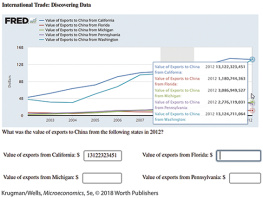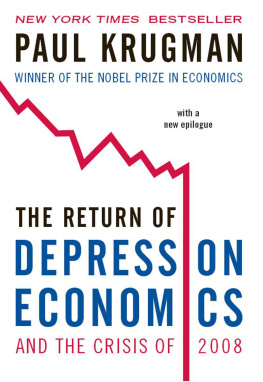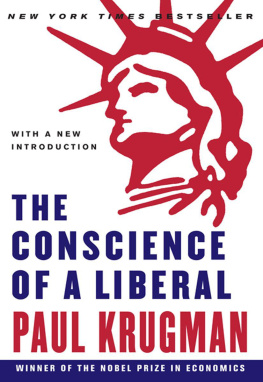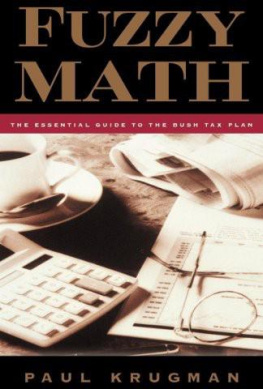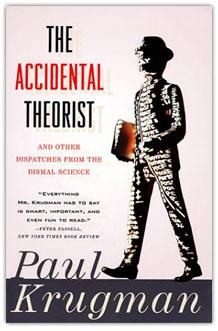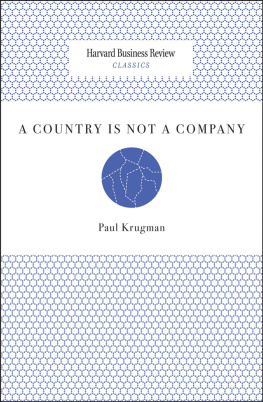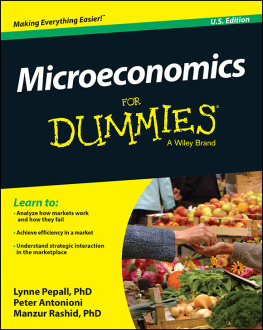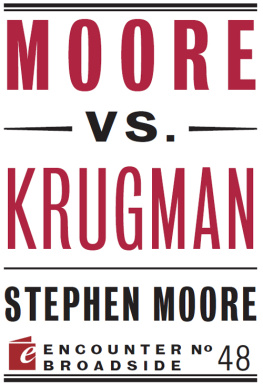Paul Krugman - Microeconomics
Here you can read online Paul Krugman - Microeconomics full text of the book (entire story) in english for free. Download pdf and epub, get meaning, cover and reviews about this ebook. year: 2016, publisher: Macmillan Learning, genre: Politics. Description of the work, (preface) as well as reviews are available. Best literature library LitArk.com created for fans of good reading and offers a wide selection of genres:
Romance novel
Science fiction
Adventure
Detective
Science
History
Home and family
Prose
Art
Politics
Computer
Non-fiction
Religion
Business
Children
Humor
Choose a favorite category and find really read worthwhile books. Enjoy immersion in the world of imagination, feel the emotions of the characters or learn something new for yourself, make an fascinating discovery.
- Book:Microeconomics
- Author:
- Publisher:Macmillan Learning
- Genre:
- Year:2016
- Rating:4 / 5
- Favourites:Add to favourites
- Your mark:
- 80
- 1
- 2
- 3
- 4
- 5
Microeconomics: summary, description and annotation
We offer to read an annotation, description, summary or preface (depends on what the author of the book "Microeconomics" wrote himself). If you haven't found the necessary information about the book — write in the comments, we will try to find it.
Microeconomics — read online for free the complete book (whole text) full work
Below is the text of the book, divided by pages. System saving the place of the last page read, allows you to conveniently read the book "Microeconomics" online for free, without having to search again every time where you left off. Put a bookmark, and you can go to the page where you finished reading at any time.
Font size:
Interval:
Bookmark:
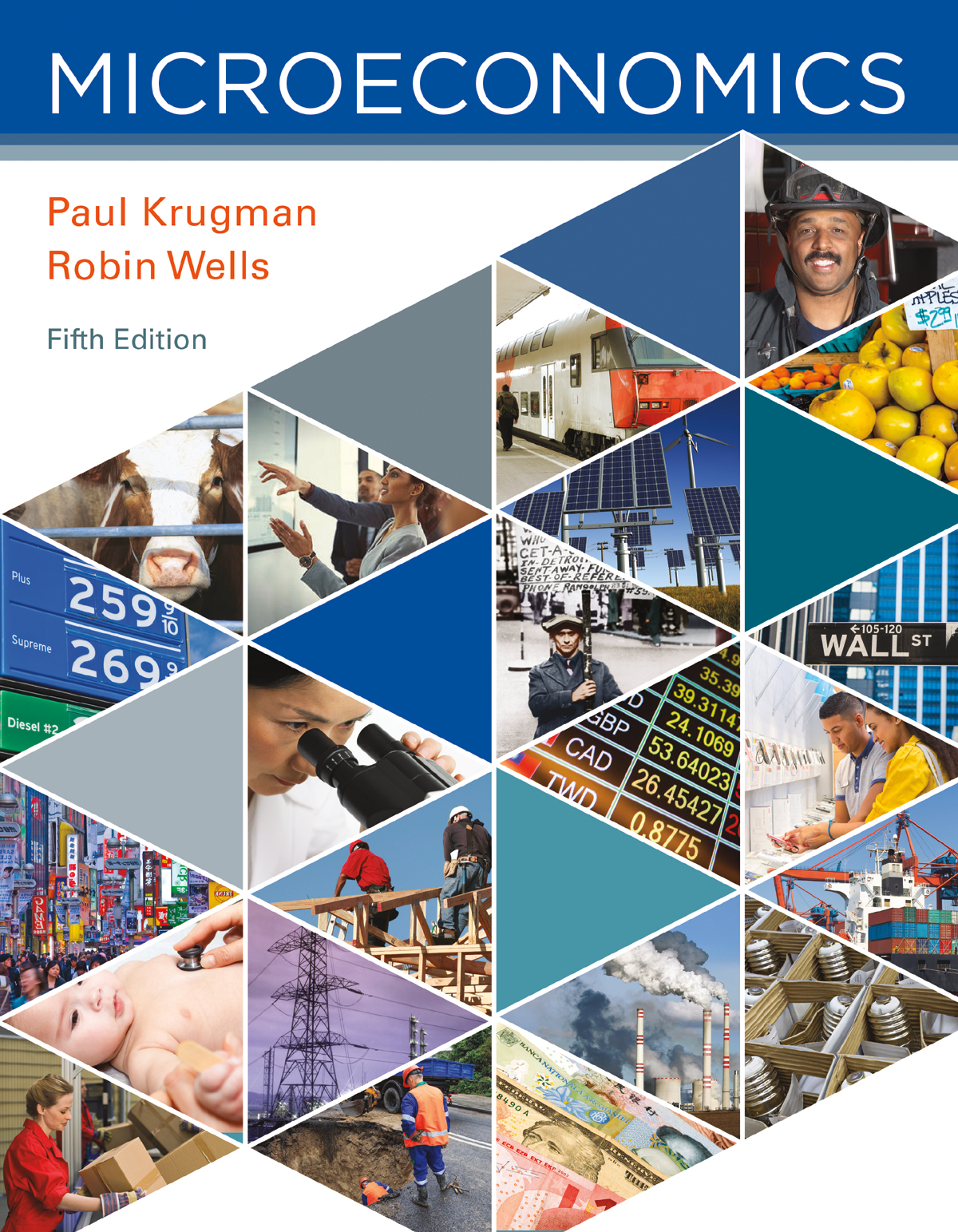


Everything You Need in a Single Learning Path
SaplingPlus is the first system to support students and instructors at every step, from the first point of contact with new content to demonstrating mastery of concepts and skills. It is simply the best support for Principles of Economics.
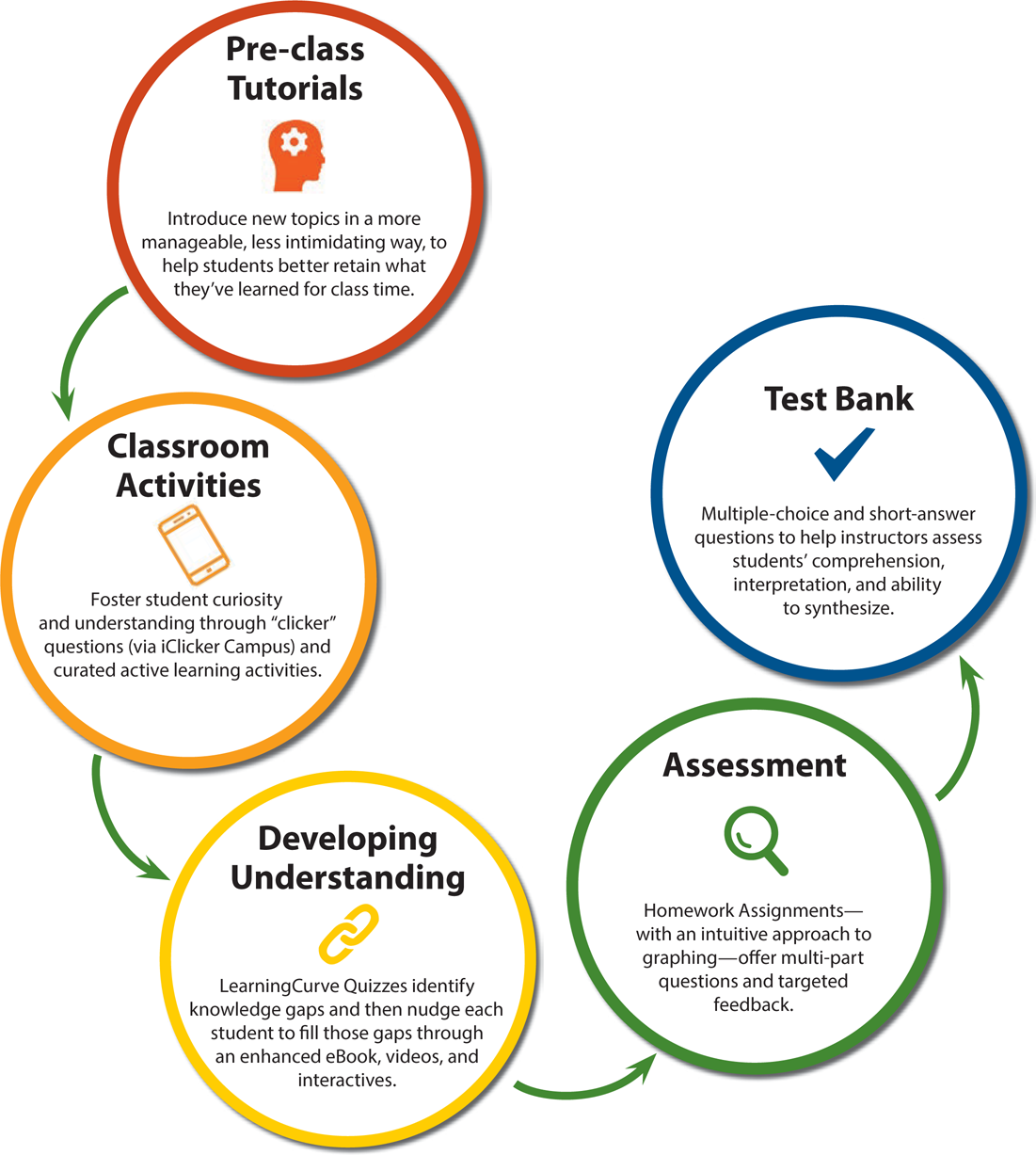
For more information on SaplingPlus, visit www.macmillanlearning.com.
Fifth Edition
Paul Krugman
Graduate Center of the City University of New York
Robin Wells

Vice President, Program Management: Charles Linsmeier
Director of Content and Assessment: Shani Fisher
Executive Program Manager: Simon Glick
Marketing Manager: Andrew Zierman
Marketing Assistant: Morgan Ratner
Executive Development Editor: Sharon Balbos
Assessment Manager: Kristyn Brown
Assessment Editor: Joshua Hill
Consultant: Ryan Herzog
Director of Media Editorial: Noel Hohnstine
Media Editor: Emily Schmid
Editorial Assistant: Courtney Lindwall
Director, Content Management Enhancement: Tracey Kuehn
Managing Editor: Lisa Kinne
Project Editor: Martha Emry
Director of Design Content Management: Diana Blume
Interior Design: Blake Logan
Cover Design: Lyndall Culbertson and Blake Logan
Illustrations: codeMantra, Network Graphics
Illustration Coordinator: Janice Donnola
Photo Editor: Cecilia Varas
Photo Researcher: Elyse Rieder
Senior Workflow Manager: Susan Wein
Production Supervisor: Lawrence Guerra
Supplements and Media Project Editors: Jodi Isman and Lisa Kinne
Composition: codeMantra
See page for cover credits information. Page xxxi is an extension of this copyright page.
ISBN 978-1-319-09878-0
Library of Congress Control Number: 2017944024
2018, 2015, 2013, 2009 by Worth Publishers
All rights reserved.
Worth Publishers
One New York Plaza
Suite 4500
New York, NY 10034-1562
www.macmillanlearning.com

PAUL KRUGMAN , recipient of the 2008 Nobel Memorial Prize in Economic Sciences, is a faculty member of the Graduate Center of the City University of New York, associated with the Luxembourg Income Study, which tracks and analyzes income inequality around the world. Prior to that, he taught at Princeton University for 14 years. He received his BA from Yale and his PhD from MIT. Before Princeton, he taught at Yale, Stanford, and MIT. He also spent a year on the staff of the Council of Economic Advisers in 1982-1983. His research has included pathbreaking work on international trade, economic geography, and currency crises. In 1991, Krugman received the American Economic Associations John Bates Clark medal. In addition to his teaching and academic research, Krugman writes extensively for nontechnical audiences. He is a regular op-ed columnist for the New York Times. His best-selling trade books include End This Depression Now!, The Return of Depression Economics and the Crisis of 2008, a history of recent economic troubles and their implications for economic policy, and The Conscience of a Liberal, a study of the political economy of economic inequality and its relationship with political polarization from the Gilded Age to the present. His earlier books, Peddling Prosperity and The Age of Diminished Expectations, have become modern classics.
ROBIN WELLS was a Lecturer and Researcher in Economics at Princeton University. She received her BA from the University of Chicago and her PhD from the University of California at Berkeley; she then did postdoctoral work at MIT. She has taught at the University of Michigan, the University of Southampton (United Kingdom), Stanford, and MIT.
This is a book about economics as the study of what people do and how they interact, a study very much informed by real-world experience. These words, this spirit, have served as a guiding principle for us in every edition.
While we were driven to write this book by many small ideas about particular aspects of economics, we also had one big idea: an economics textbook should be built around narratives, many of them pulled from real life, and it should never lose sight of the fact that economics is, in the end, a set of stories about what people do.
Many of the stories economists tell take the form of modelsfor whatever else they are, economic models are stories about how the world works. But we believe that student understanding of and appreciation for models are greatly enhanced if they are presented, as much as possible, in the context of stories about the real world that both illustrate economic concepts and touch on the concerns we all face living in a world shaped by economic forces.
Youll find a rich array of stories in every chapter, in the chapter openers, Economics in Actions, For Inquiring Minds, Global Comparisons, and Business Cases. As always, we include many new stories and update others. We also integrate an international perspective throughout, more extensively than ever before. It starts with a new introduction and an opening story on Chinas Pearl River Delta that sets the stage for new attention to Chinas ascendance in the global economy. An overview of the types of narrative-based features in the text is on p. x.
We also include pedagogical features that reinforce learning. For example, each major section ends with three related elements devised with the student in mind: (1) the Economics in Actions: a real-world application to help students achieve a fuller understanding of concepts they just read about; (2) a Quick Review of key ideas in list form; and (3) Check Your Understanding self-test questions with answers at the back of the book. Our thought-provoking end-of-chapter problems are another strong feature. The Work It Out feature appears in all end-of-chapter problem sets, offering students online tutorials that guide them step-by-step through solving key problems. With the Fifth Edition, a new feature, Discovering Data exercises, offers students the opportunity to use interactive graphs to analyze interesting economic questions. An overview of the texts tools for learning is on p. xi.
Font size:
Interval:
Bookmark:
Similar books «Microeconomics»
Look at similar books to Microeconomics. We have selected literature similar in name and meaning in the hope of providing readers with more options to find new, interesting, not yet read works.
Discussion, reviews of the book Microeconomics and just readers' own opinions. Leave your comments, write what you think about the work, its meaning or the main characters. Specify what exactly you liked and what you didn't like, and why you think so.

